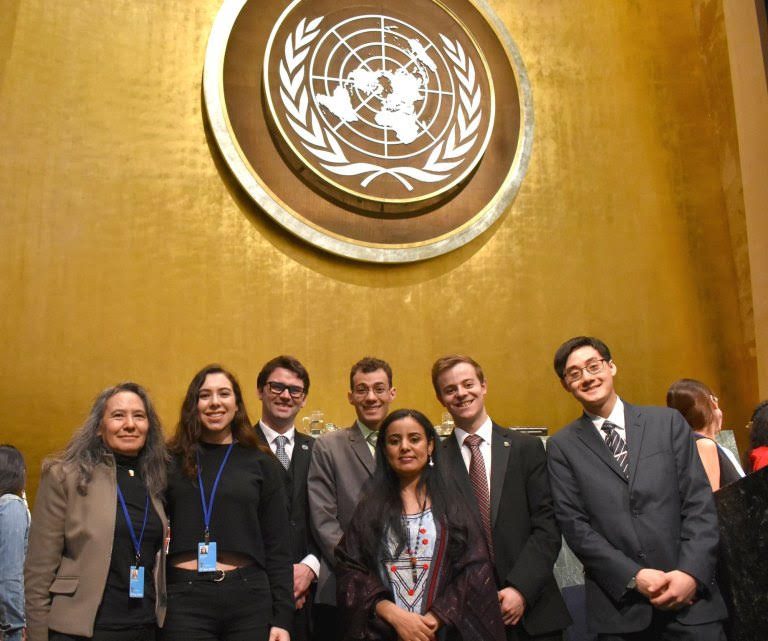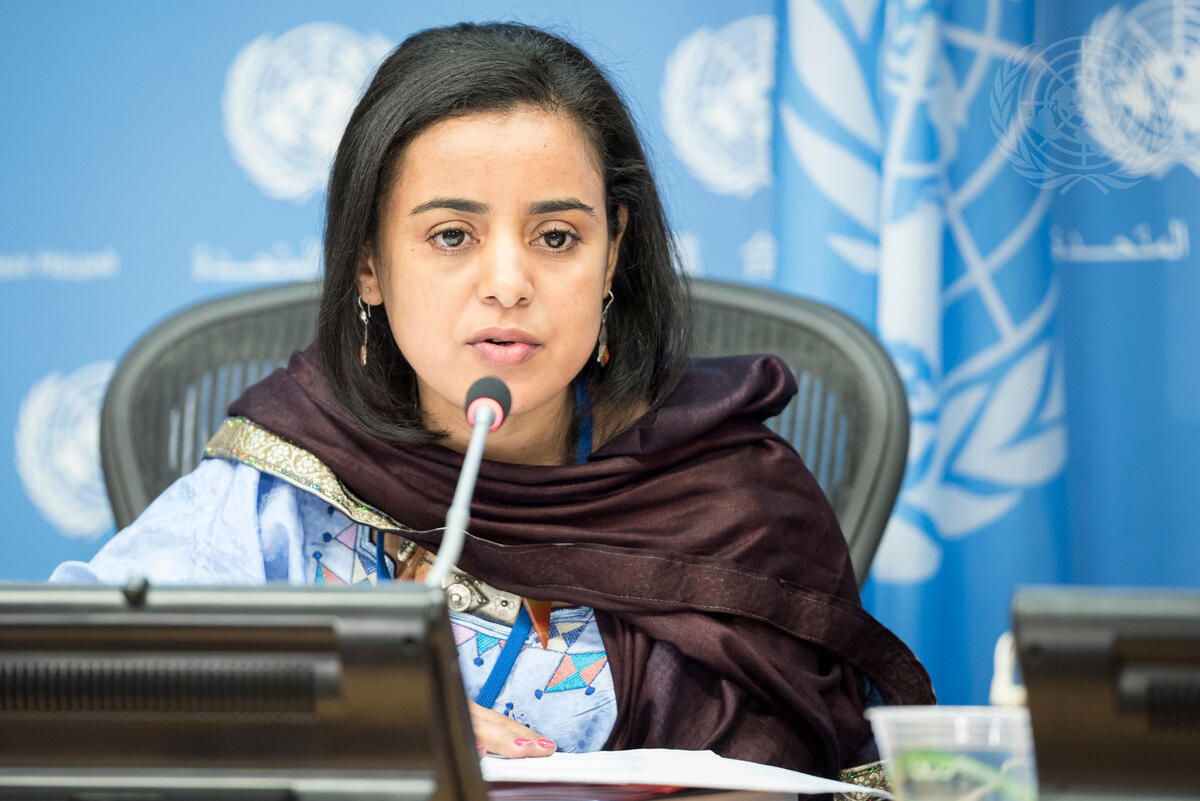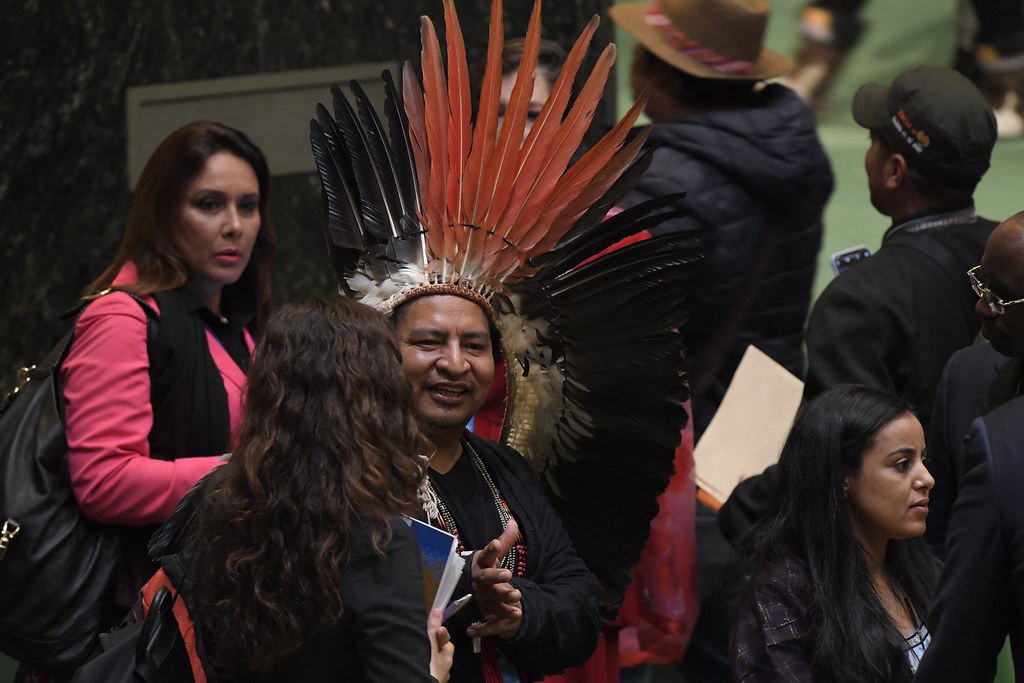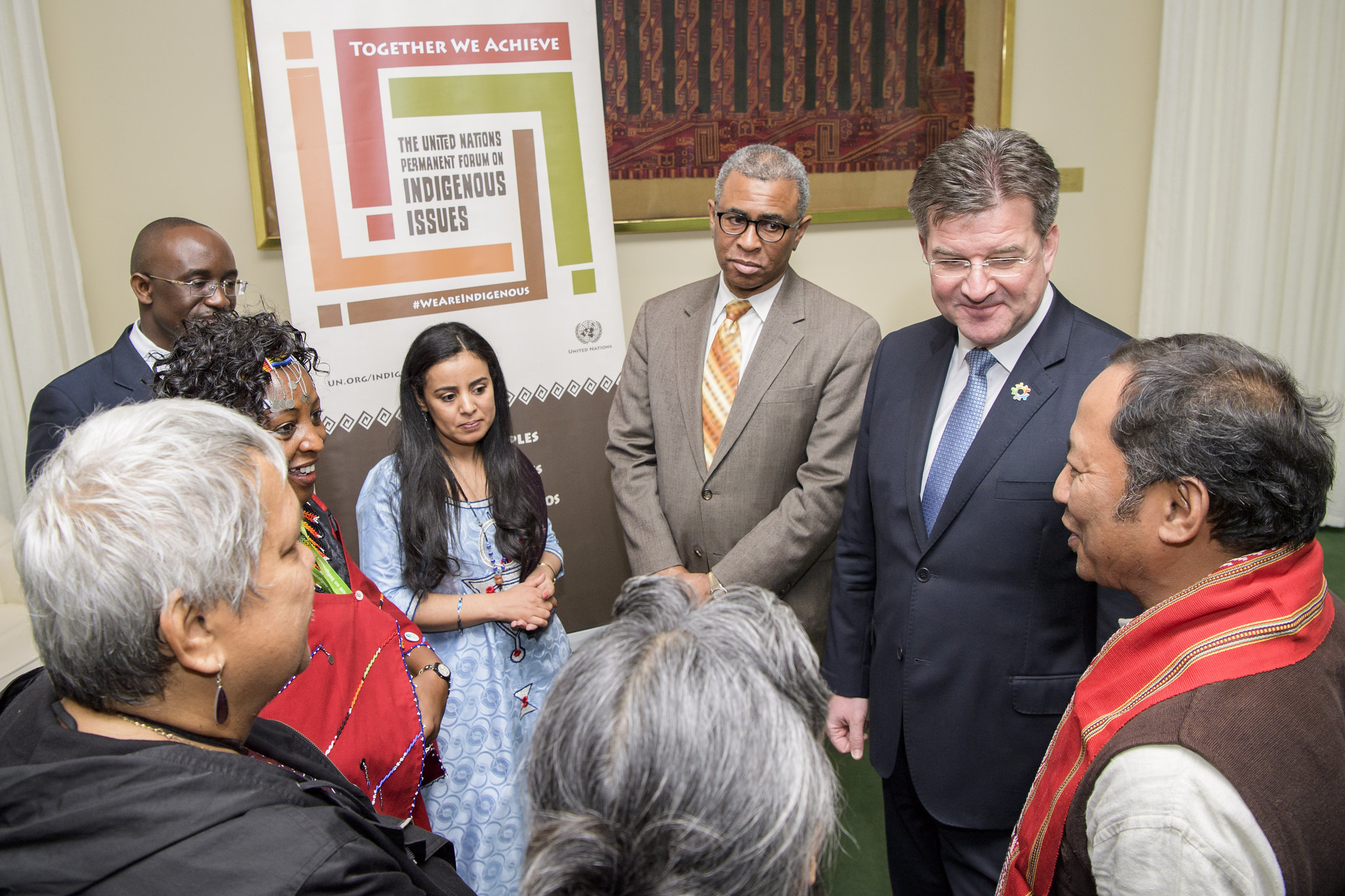Member & Chair of the UNPFII
Mariam joined the United Nations Permanent Forum on Indigenous Issues, not only because it is a key space inside the United Nations, but also to illustrate the capacities of Indigenous Youth and Women. For her, to be at the UNPFII, it is not only inspiring Indigenous girls, women and youth to engage in the recognition and implementation of their rights, but also to give a face, to illustrate African indigenousness.
Other engagements at the international level
Indigenous peoples are experts and should be recognized as such and involved in all relevant spaces to them including local, national and international institutions. This has moved Mariam’s advocacy work at the international level in the last decades. As the representative of Africa, she has joined a group of Indigenous leaders from the 7 socio-cultural regions of Indigenous Peoples at the Temporary Committee on Indigenous Participation where she brings her knowledge on ways to engage more African states for an enhanced participation of Indigenous peoples at the United Nations.
International engagement
Member & Chair of the UNPFII
Member & Chair of the UNPFII
Mariam joined the United Nations Permanent Forum on Indigenous Issues, not only because it is a key space inside the United Nations, but also to illustrate the capacities of Indigenous Youth and Women. For her, to be at the UNPFII, it is not only inspiring Indigenous girls, women and youth to engage in the recognition and implementation of their rights, but also to give a face, to illustrate African indigenousness.
Mariam has thus been involved with the UNPFII since 2014, as the youngest Indigenous representative, member, Vice-chair and Chair of the Forum.
As a member of the forum, thanks to her diplomatic skills, Mariam has been able to prioritize the dialogue between different actors in order to contribute to advance Indigenous Peoples’ rights, including States who are usually rigid to let Indigenous peoples denounce human rights’ violations. She insisted that the UNPFII, United Nations’ agencies, programs and funds, as well as States and other actors, keep the problematic issues for Indigenous peoples as a priority in its agenda.
She contributed to develop work methods in the UNPFII in order to ensure a monitoring the implementation of the United Nations Declaration on the Rights of Indigenous Peoples. For example, recommendations are now drafted according to the SMART criteria, a specific member of the forum is designated to ensure the monitoring of specific recommendations, and an item is included in the Agenda of the annual session in order to report on follow-up actions and implementations of the recommendations.
Thanks to her leadership in the Permanent Forum, she was successively a member, its vice-chair, its interim chair and its chair. She took the voices of millions of Indigenous in Indigenous communities in the seven Indigenous socio-cultural regions before the United Nations General Assembly, the Presidency of the Economic and Social Council, the WHO, the FAO, before academic spaces, such as the Harvard University, University of Columbia, McGill University, University of British Columbia. It allowed Mariam to build strong relationships with a diversity of peoples, actors and institutions who continue to call on her expertise on Indigenous issues.
International engagement
Other engagements at the international level
Other engagements at the international level
Indigenous peoples are experts and should be recognized as such and involved in all relevant spaces to them including local, national and international institutions. This has moved Mariam’s advocacy work at the international level in the last decades. As the representative of Africa, she has joined a group of Indigenous leaders from the 7 socio-cultural regions of Indigenous Peoples at the Temporary Committee on Indigenous Participation where she brings her knowledge on ways to engage more African states for an enhanced participation of Indigenous peoples at the United Nations.
Mariam is convinced of the importance of Indigenous langages for biodiversity, health, well-being and identities of Indigenous Peoples, because her own people is named Kel-Tamasheq, “those who speak Tamasheq”. Thus, without Tamasheq, there would not be Kel-Tamasheq. While she is a spokeswoman of her language, she still encounters several difficulties when she has to work with specific concepts that fall under specific areas such as health, law, because these concepts are described with the dominant languages or languages of colonization. Given the urgency of the preservation, revitalization and promotion of Indigenous languages, Mariam engaged with the UNESCO Global Task for International Decade on Indigenous Languages 2022-2032.
In Canada, she is also a member of the Coalition for the Human Rights of Indigenous Peoples where she advocates for the implementation of Indigenous Peoples’ rights including with an emphasis on the adoption of the UNDRIP at the provincial and federal level.




